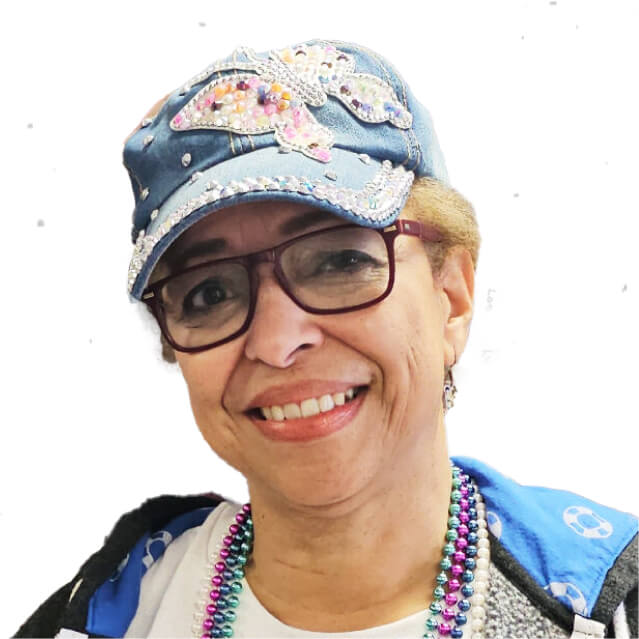Volunteer SpotlightJudy BattistaHudson Valley/Westchester Chapter

In 2008, at the age of 20, Judy Battista’s son Daniel died by suicide. Judy and her family decided to be open to others that Danny’s death was by suicide, and to learn more about this leading cause of death. Met with love and support from her community, she was invited to an Out of the Darkness Walk. Later that year, she attended her first International Survivors of Suicide Loss Day (also known as Survivor Day) event and began volunteering for AFSP. In addition to coordinating the Healing Conversations program for her chapter and hosting numerous Survivor Day events over the years, Judy was also a panelist for Día de Esperanza (Day of Hope), a national virtual panel discussion taking place a day before Survivor Day, offering support specifically for Hispanic and Latinx communities that have been affected by suicide loss.
“We all grieve differently. As I began to find my path after losing Danny, I realized that giving to others in Danny’s memory was a gift of healing to myself, too. The Loss & Healing programs are the heart of AFSP. Being able to speak to loss survivors, equipped with the confidence of science-based research, is a gift of compassion, empathy, and love we share.
We don't stop grieving. We don't stop loving. We remain our authentic selves.
I organized my first Survivor Day event in 2009. Fast-forward, and it’s 14 years later! Each chapter is unique in how they present their International Survivors of Suicide Loss Day program, and therein lies the beauty of it. It is a healing event made up of moments: a day that people look around and see they are not alone. The sense of unity is powerful, and that is where the healing magic happens. Some people attend once and move forward. Others return year after year. I feel like a proud mother, seeing how they have grown in their own healing experience.
As a Latina, I was glad to participate this year in the Día de Esperanza (Day of Hope) event. I grew up in a dual language household, and we only spoke about mental health in passing. There are over 21 different Spanish-speaking countries, and each has its own cultural values passed down through generations. The Día de Esperanza conversation was held in Spanish. For those of us who are bilingual, it feels like living in two worlds. I had processed suicide loss grief more in English. Having these conversations in Spanish is like flipping an empanada to cook it on the other side! It is a profound, internal shift that is both validating and empowering. It helps me grieve and heal in both languages.
As a Healing Conversations volunteer, you sometimes see your own journey in people whose loss is more recent. The training for the program is incredible, and one learns to listen, cry, laugh or just sit in silence with them. It really is a sacred space. Healing Conversations volunteers must have empathy, compassion, and the ability to identify, listen and offer hope. I may not know a person’s exact pain, but I may have felt something parallel with them. It’s like looking in a mirror, to a past reflection of myself. As one loss survivor said to me after a visit, ‘Thank you for giving me hope — at least I know I can survive as long as you have!’
We don’t stop grieving. We don’t stop loving. As much as we change because of our loss, we remain our authentic selves. Through my involvement with AFSP, I have learned to be the voice of the voiceless, to have more compassion, and that I am a good mother. I have learned that helping others is helping yourself, too. That love never dies. This is Danny’s gift to me."
